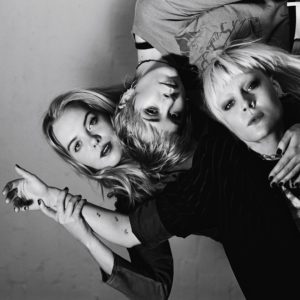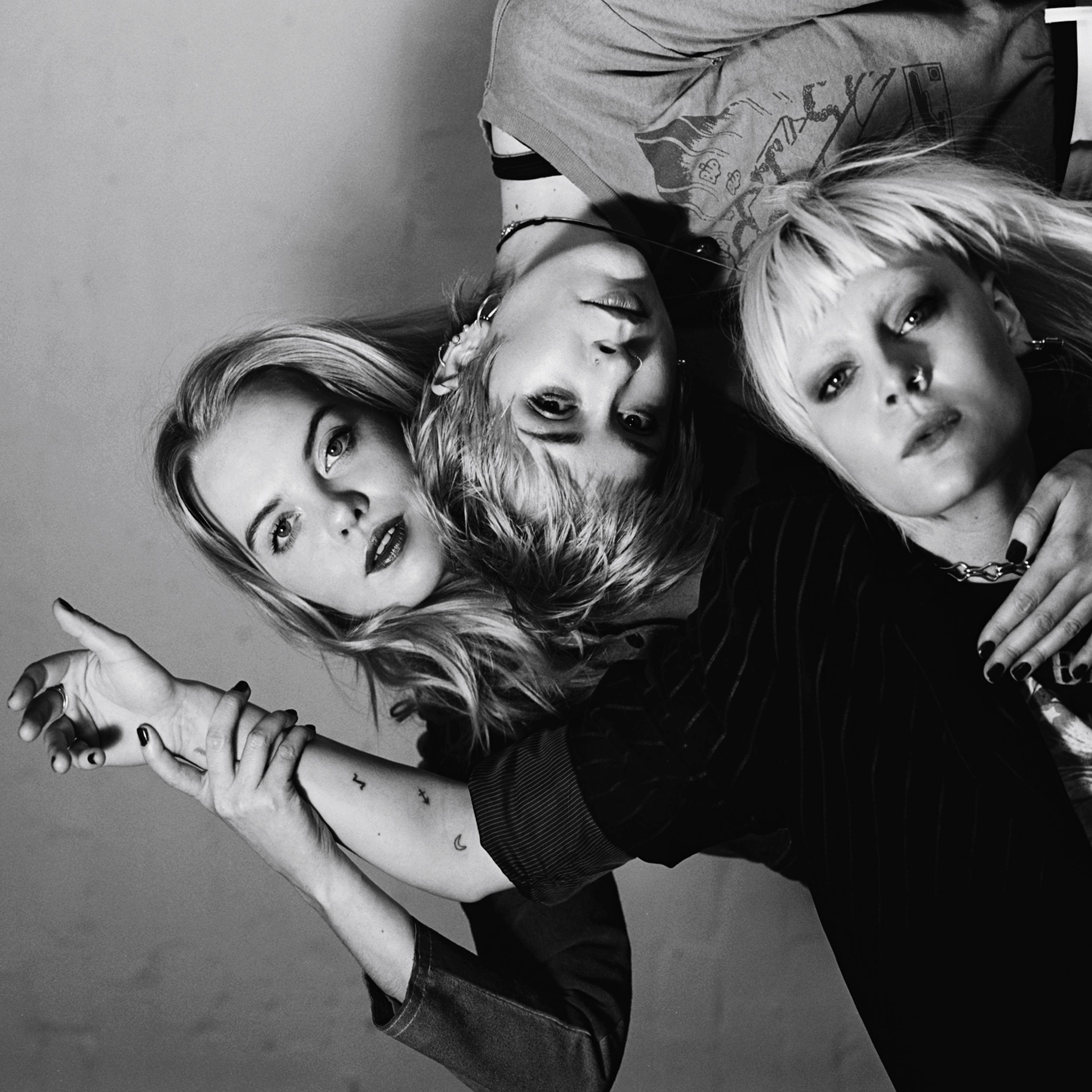Dream Wife 
Dream Wife
LUCKY NUMBER
7/10
In light of current events regarding sexual assault allegations, Dream Wife’s self-titled debut feels like a refreshing and bold affirmation of feminine desire. It’s also an empowered antithesis to the sentiment that punk is dead when you get three intelligent musicians—vocalist Rakel Mjöll, guitarist Alice Go, and bassist Bella Podpadec—meeting up in art school, looking for an excuse to go to Canada, and forming a fake band. Said fake band turned from a performance piece with a gallery exhibition (not named after the 1953 Cary Grant movie, it turns out, but rather after the term’s complicated etymology) into a real career endeavor. Over fortified vocal harmonies, punching rock drum beats, and growling guitars that ring like fire alarms, Dream Wife have conceived a pointed but fun debut.
When the London-based trio’s album opens with “Let’s Make Out,” they set a precedent: their needs and wants will be heard. There’s no hidden signals or room for misunderstanding as Mjöll’s vocals fray at the edges like distressed jeans, spearheading the charge. And for a moment, Dream Wife make rapid sexual sprees innocent and exciting in a warm and cliché narrative of young passion (“We’re wasting our youth / We’re stuck in a kissing booth”). Soon after, however, Dream Wife reminds us that even after clarity, abuse and exploitation are still inevitable in this patriarchal reality. On “Somebody,” seamless guitar riffs weave in and out, shrouded in light distortion, looping around each other, allowing Mjöll’s vocals to stand out. Her message of pensive corporeality and emotional agency is beaming: “I am not my body / I am somebody.”
The trio draws influence from many politically proactive artists including Debbie Harry, Kathleen Hanna, and Grimes. They tackle an immense amount of territory lyrically, including a fantasy of liberated escapes with new loves (“Love Without Reason”), a vengeful lament about vicious and unfaithful affairs (“Hey Heartbreaker”), and a reactionary track about the condescension—many times gendered—that comes with the inclination to “Act My Age.”
Dream Wife is a manifesto against objectification, and for feminist solidarity, while still embracing physical satisfaction. On “Right Now,” Mjöll depicts late nights fading into early mornings filled with stick-and-pokes, laughter, and a rendezvous by a bridge. At times she sounds like Karen O, her vocals reaching piercing highs while haloed in distortion. On hard rock anthem “F. U. U.,” featured rapper Fever Dream screams, “I spy with my little eye bad bitches / Dream Wife for life.” This album is an introduction to the band’s anxieties and desires, but confirms that their vulnerability is not an invitation to fuck with them.









